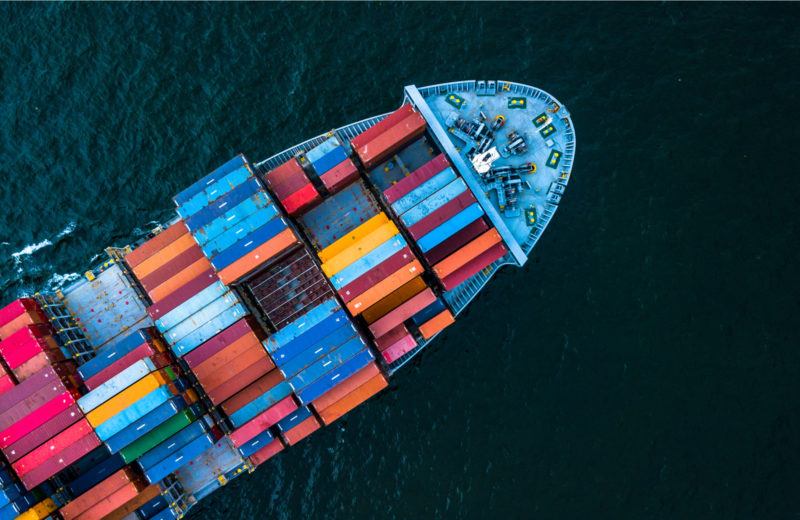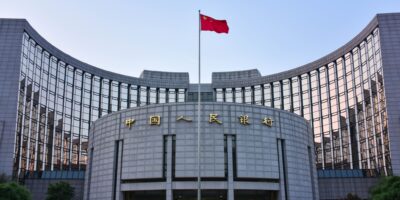The Glorious Innovation of Containerization

Since the global outbreak of the COVID-19 pandemic, significant fear has gripped public officials, business leaders, as well as scholars about the disruption of global supply chains. Although Americans have experienced pervasive shortages in particular goods, such as toilet paper and hand sanitizers, due primarily to laws against “price gouging,” it is quite amazing to see, in spite of the fear of global supply chain disruption, how goods from all over the world still arrive in our supermarkets on a daily basis.
How is this all possible?
64 years ago today (April 26th), a refitted WWII oil tanker named the Ideal-X set sail from Newark, New Jersey, hauling 58, 30-foot steel containers loaded with cargo bound for Houston, Texas. It was on that voyage that modern containerization was introduced, giving birth to the post-WWII era of globalization that we’ve experienced since.
The father of modern container shipping was a North Carolina truck driver named Malcom McLean. The genius of McLean was not to “invent” something new. Containers, ships, trucks, trains, ports, and cranes, all of which are necessary to transport goods internationally, had already existed for decades prior to 1956. Rather, it was to reorganize and link intermodal transport by land and sea in a way that no one else had realized before. Like any great innovation, container shipping was so obvious after the fact it is incredible that it had not been implemented earlier.
McLean did not invent containers or ships, but a way to combine the use of containers and ships more effectively. What McLean observed was that the time at port to load and unload such cargo was often just as long, or exceeded, the time a ship sailed across the Atlantic (roughly 10–14 days). When it comes to shipping, time is literally money: every minute a ship is docked forgoes potential revenue that could be earned transporting freight.
In a recent paper I wrote with Peter Jacobsen and Kacey Reeves, we illustrate that McLean’s entrepreneurial insight was to discover a profit opportunity to reduce the transaction costs that impeded international trade via institutional innovation. Prior to containerization, cargo from ships had to be loaded and unloaded by dockworkers, known as longshoremen. Such a method of transport presented significant transaction costs in the form of holding inventory at port warehouses, potential damage and perishability of goods in loading and loading, theft, and threat of union strikes by longshoremen.
With a stroke of “entrepreneurial alertness,” as economist Israel Kirzner would put it, McLean was able to perceive a way to profit from a reduction in these costs by the utilization of cranes that transported containers directly on a truck trailer or a railcar, eliminating the process of loading and unloading by hand until such goods arrived at the their final destination. Loading time was reduced from days to less than 8 hours on that maiden voyage of the Ideal-X, and, according to Levinson (2006, p. 52), reduced the cost of shipping from $5.83 per ton in 1956 to 15.8 cents per ton.
What does all of this have to do with the COVID-19 pandemic and alleged threat to the global supply chain? To begin with, it is misleading to argue that global supply chains need to be “managed” from disruption because international trade is neither planned nor “managed.” International trade is the unintended outcome of consumers demanding goods, and suppliers striving to meet those demands through the production and exchange of goods throughout the world.
The container is the medium through which the spontaneous order of trade is facilitated. Moreover, the global division of labor is increasingly based, not on the exchange of final goods directly purchased by consumers, but on the exchange inputs produced in one country, to be shipped and used as a component in the production of a consumable good in another country. Indeed, this growing interdependence has provoked fear that the pandemic will expose a fragility to the process of production and exchange that characterizes the global economy.
However, entrepreneurial innovation has unintended benefits that no one, not even the entrepreneur devising the innovation, can fully anticipate. To put the current fears regarding the global supply chain in perspective, let us imagine a world in which McLean never discovered the containership.
Under current quarantines, shutdowns, and other demands for “social distancing,” the labor-intensive nature of global shipping prior to containerization, with the use of longshoremen manually transporting goods from ships to other modes of transport, such as rail or truck, would have been more fragile to such disruption. From this comparative perspective, global supply chains are more robust than ever, thanks to the entrepreneurial efforts of Malcom McLean and his pioneering of the containership.










